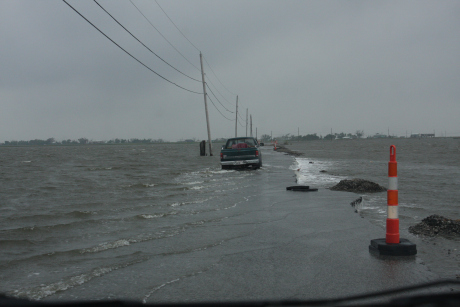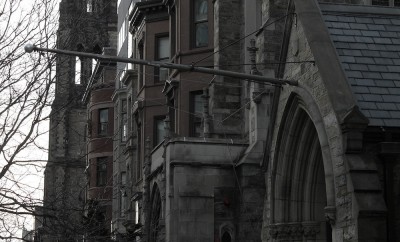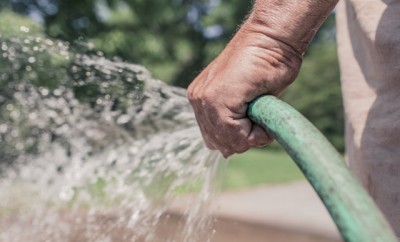Environment
Climate Change Has All But Swallowed This Native American Community

Image: The Connie Sun
In Louisiana,the sea is rising. The National Oceanic and Atmospheric Administration claims that waters could rise more than four feet by the year 2100. Though four feet may not seem like much, for a coastal community in the Louisiana Bayou, it means losing everything. As the sea rises, the water flows over the streets and into fresh water supplies, tainting them. Farms and homes are destroyed by the implacable advance of the ocean. Local trees and foliage, poisoned by salt, wither and die. For one community, the change in global climate has driven them from their homes.
Isle de Jean Charles, a town populated by a small band of Biloxi-Chitimacha-Choctaw Native Americans, is being swallowed by the sea. Throughout the past fifty years, 90% of the island has been buried underneath the waves, and experts suggest that it will be completely gone before another fifty years go by. People whose families have resided on Isle de Jean Charles for two hundred years are being forced to abandon their livelihoods and ancestral homes, leaving only a dwindling population of twenty-five families.
The federal government has awarded them a grant to be relocated to a safer location, making them the first official climate change refugees in the US. The grant is a culmination of a decade long struggle to get the Federal Government to recognize the precarious position of the tribe. Albert Naquin, chief of the band, has been fighting for 13 years to secure funds to move the community to higher ground. Though they have won a victory to preserve their community, one cannot help but imagine the sadness they must feel at leaving the only home they have ever known.
As the rise in global temperature continues to lead to rising seas, this struggle will become more common. Coastal communities across the country are threatened with the same fate as Isle de Jean Charles. As a nation we will face a choice. Either we make meaningful efforts to limit climate change, or continue to bear the costs of communities like this one being swallowed by the ocean.





0 comments